Fatima and 'That' Poster
The Importance of the Arts

Leaving aside existing political allegiances, no-one can deny that the UK Government's handling of the Covid crisis has been less than exemplary.
On the one hand, it's impossible not to make allowances for any missteps; these are unprecedented times - no-one was ever going to get everything right (well, unless you live in New Zealand, that is). So, a very large part of me accepts that mistakes were inevitable.
However...
There were some mistakes that were not inevitable. There have been a number of incidents that, quite honestly, could - and should - have been avoided.
To begin with, there was the fiasco surrounding Dominic Cumming's trip to Northumberland, which was both insulting to those of us who have tried our hardest to follow the guidance as laid down by the British Government, as well as being sheer political incompetence.

For the Prime Minister's chief advisor to not only flaunt the rules the rest of the country were bound by, but to also face no sanctions for doing so, was high hypocrisy.
As was the 'Clap for the NHS.' This was an well-intentioned way for the British public to thank the efforts of our doctors, and nurses, who have tirelessly fought the front-line war against Coronavirus.
However, for the UK Government to encourage us to take to our doorsteps and applaud, when they both blocked a pay-rise for these very same workers, and then did not provide them with adequate personal protective equipment, was - again - rank hypocrisy.
Forget about clapping for the people working within the NHS - can't we just pay them a bit more?
However, that hypocrisy was compounded even further when, just a short time ago, our parliamentarians awarded themselves a pay-rise. Couldn't we just clap for them instead?
I could go on.
However, over the last few weeks there's been something else.
And it's related to the 'Arts.'
I'm simplifying things hugely (hugely) here, but there are essentially two schools of thought: The first is that everyone in every industry is in the same boat; the second is that the 'Arts' have been unfairly treated when compared to other fields. Some have even said that it's a deliberate attempt by the ruling Conservatives to artificially change the cultural landscape.
It's hard to fully disagree with the latter.
To begin with, many owners and mangers of concert halls, comedy clubs, theaters, and art galleries have spent vast sums of money to make their venues safe, only to be told to close a short time later, giving them no chance to recoup the money the Government told them to spend. Oh, and then they can re-open again. Then close...
I'm not ignorant to the fact that this is an incredibly fluid situation, that changes on a day-today basis, nor that the UK Government has awarded a number of grants to assist some of these venues. That money may very well keep many of them in existence. But, whether or not that money balances out the damage they've already endured thanks to an inconsistent policy up to this point, remains to be seen.
It is too little too late? We'll only truly know when we survey the cultural landscape in 12 months time.
The upshot is that even when these establishments have done their utmost to 'Covid-proof' themselves, they've been caught in a economically-crippling merry-go-round of opening, and then closing, and then re-opening, and then...
Sadly, many of these will not re-open again; Covid has closed some of them for good. Could the Government have done more? In a free-market economy, it's hard to argue that 'bail-outs' should be dispensed with abandon. However, as a lot of these venues have, correctly, pointed out, that didn't stop the UK Government from delving into its pockets when many of our banks faced crisis, often through managerial ineptitude.
That, many claim, is clear evidence the current Government doesn't care about the 'Arts.'
Then there were the comments of the Chancellor, Rishi Sunak, questioning the 'viability' of the arts, and the various jobs contained within it. His belief that the people currently employed in that sector should retrain in other fields was, many thought, a tacit admission that his Government couldn't care less for this industry nor the skills of the people who work within it.

Finally, there was resurfacing, online, of the 'Fatima' poster.
It's an old poster, but it's pretty devastating when placed next to Sunak's comments. It shows a ballerina, tying her shoes, but says that she could 'retrain' for employment in another field, with the tagline: "Fatima's next job could be in cyber. She just doesn't know it yet." Whether or not you agree with the sentiment, it's a pretty cheap dismissal of the years, and effort, poor Fatima - or anyone like her, fictional or otherwise - may have invested in following her dream.
For a country that gave the world such visionary thinkers as Blake and Marlowe and Turing, the poster is prosaic in the extreme. Is that really the best we could do?
And, many argue that those three elements - the lack of meaningful financial support for struggling venues, combined with an inconsistent - and damaging - policy regarding their opening and closing, the Chancellor's comments, and that poster - highlight the Tories' deliberate destruction of the cultural landscape.
Yeah - sounds great.
But I'm not buying it.
For a start, to imply that our political leaders have done any of this on purpose would imply an ingenuity I don't believe they possess.
(Exhibit A: 'Track and Trace' - I'm not saying that this has been a shambles, but my youngest daughter could have designed a better system. And she's nine years old. So, actually, I probably am saying it's a shambles.)
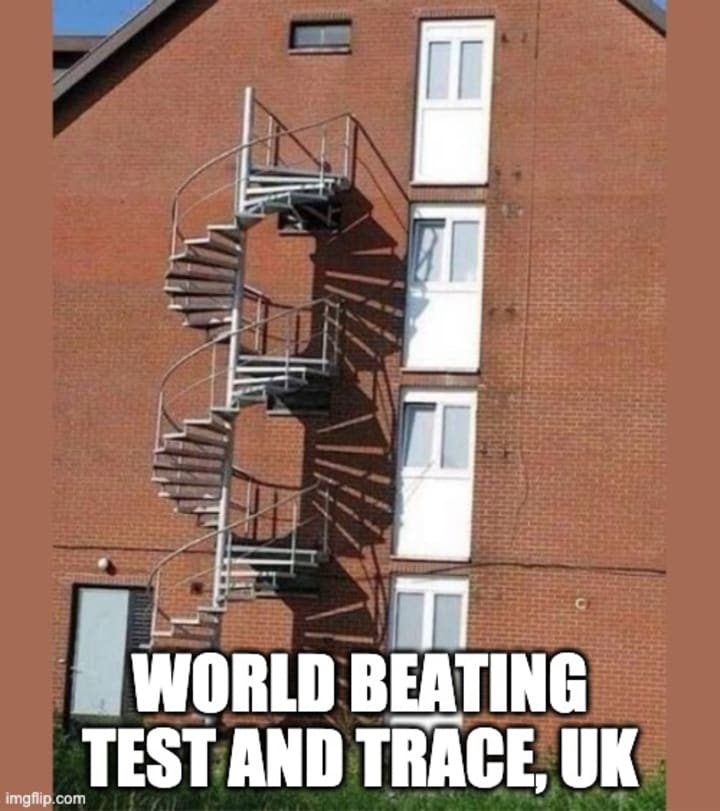
Given how badly they've messed up the Covid crisis, I don't think the Government are capable of a deliberate, and systematic dismantling of the cultural landscape. Honestly, they're not that smart.
Secondly, it's not just been the 'Arts' that have suffered at the hands of the Government's policy: It's been everyone.
From the get-go, Boris and his clan have not followed a clear, and coherent strategy. They've flip-flopped between, one week, trying to protect the economy, to the next week following the science, before - ignoring the science - and then choosing to go back to protecting the economy.
I'm not naive - the economy matters. I know that. But, see-sawing between the two extremes has neither protected the economy (we're in a recession), nor safeguarded lives (our infection rates are among the highest in the world).
What can't be argued is that a lack of a clear, and coherent governmental policy has affected the health of the nation, as well adversely impacting upon every industry, every field.
Have the 'Arts' been unfairly singled out? Perhaps. But it's not as if the Conservatives have done much to protect any other industry. Given the way they've tried to dismantle the health service, you could also say they're anti-NHS. You could also argue the same about education. And...
Our Government's attitude towards anything can't be seen in how they fund it, or don't fund it - unless you're a banker, you're pretty much in the same boat.
Next, Sunak's comments. Crass? Undoubtedly so. Evidence of a nefarious plot to wipe out the nation's creative industries? Well, that's probably a by-product (intended or otherwise) of the Government's policy, but, if you honestly think the words of a politician are going to bring the artists of the UK to their knees, then you've wildly underestimated that community.
All Sunak has really done is wind them up. It's akin to poking an already angry wasp-nest with a very, very short stick. And they're already fighting back.

Telling them all they're not 'viable' is probably the worst thing you can do. These aren't the kind of people who'll go, "you know what; he's right," pack up, and go quietly into the night. They're already passionate about their calling; you really didn't need to make it political as well. For the next decade, there's going to writers, musicians, comedians, and painters with a very (very) big point to prove.
Antagonizing the creative community was hardly Machiavellian politicking. It'll only make them work even harder to prove him wrong. Again, my youngest daughter could have done better.
And the poster? It's an old poster. It was undoubtedly dredged up to further the claim the Government is anti-the 'Arts.' But, let's be honest? If you need to be told the Tories can be unsubtle and crass then - quite honestly - you've really not been paying any attention for the last five years. I'm actually surprised anyone was even remotely shocked by it at all. I mean, come on - did you really expect them to say anything else?
For me, none of this is surprising, and - as a result - not particularly interesting. "Tories don't like the 'Arts'" is the smallest shock I've ever experienced. .
However, what has been interesting is watching the debate we're suddenly having about the 'Arts' themselves. That transcends party politics, and makes the politicians involved seem pretty trivial. We're suddenly asking very big questions about our cultural heritage and future.
We're even asking the biggest questions of all: Do we actually need the 'Arts'?
Ironically, this debate has only made the Conservative's handling of this industry pretty baffling.
For the answer is a resounding, 'Yes.'
Because, economically, and culturally, we're talking about huge numbers, and an impact that is almost immeasurable.
Let's start with the money.
According to figures from the Government itself, the arts and culture industry contributes around £84.1 billion to the UK economy a year.
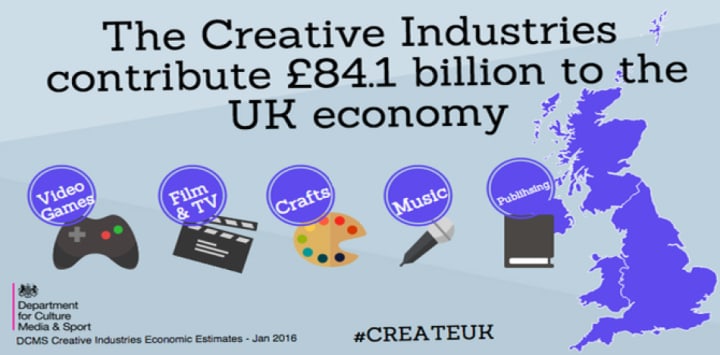
£84.1. Billion.
And that's only 'direct' money - ticket sales, etc. That doesn't take into account the cash you'll spend on buying a drink in the pub afterwards, or the fare you'll give your taxi-driver, or anything else that is 'indirectly' a result of you going to watch a gig, a comedy show, or a play.
No, it's £84.1 billion on it's own. I don't know about you, but if I was in charge of the Government's financial standing, I'd be doing a little bit more to make that industry a touch more 'viable.' £84.1 billion is lot of money to lose, and the last time I looked, the UK Government wasn't exactly rolling around on a bed of golden coins like Scrooge McDuck.

So, on pure economics alone, yes - we need the 'Arts.'
We also need them to maintain the UK's standing on the World Stage. For, despite what the pro-Brexiteers will tell you, we're not an Empire anymore. Honestly, we're really not.
The UK's economic and political might is nothing compared to that of the US, China, Russia, or Germany. If English wasn't the global language, we'd be powerful as... well, I'm not going to (inadvertently) insult another country. But, let's just say our language gives us a status we otherwise might not have.
But, it's not just our language - it's how our language permeates other countries. And it does that through our culture.
I'm pretty sure you don't need an exhaustive list, so I'll just cherry-pick a few names: Monty Python; The Beatles; Laurence Olivier; David Hockney. How about four more more: Harold Pinter; Ricky Gervais; The Rolling Stones; Simon Rattle. Four more? Okay: The Royal Shakespeare Company; Ian Fleming; Adele; Alexander McQueen. More, you say? 'Doctor Who'; Ed Sheeran; Tom Stoppard; Queen...
Yes, I'm pretty sure I could this all day.
Our culture is, arguably, the UK's greatest export.
It's not just our language that keeps us on the global stage; it's the actors, comedians, directors, novelists, playwrights, poets, and musicians that take our brutish Anglo-Saxon and do something utterly magical with it. It's in the painters, and designers who subsume the limited palette offered by our nation's natural geography, and create visual worlds you and I can only dream of bringing forth.
If the arts aren't 'viable', then nor is our place on the World Stage. Because, without the arts, our appeal as a leading player is immeasurable diminished. It's how other nations 'know us.' The whole world isn't watching the TVs we make; but they are watching a heck of a lot of British people on it. They're not listening to music on the streaming services originating from the UK; but our musicians probably appear on most people's playlists.
If I was in a position of political power, the very last thing I'd do is weaken the value of the greatest thing we export.
But, it's not just on a global scale; it's on a personal one. It's in the joy these industries - and these artists - bring.
I could cite academic studies explaining the psychological benefits of music, of drama, of fine art, of comedy. Genuinely, there's no shortage of them. More simply, you've only got to look at the share price of Netflix to see how voraciously we consume what these incredibly talented people produce.
Instead, I'm going to sum this up with a simple tweet. You could swap the names of the people involved for your own favorite creative visionaries, but - for me - the power of the 'Arts' is summed up in this one message from one of my favorite writers, Matt Haig, talking about another;
"Imagine if Shakespeare had retrained for a career in cyber."
Obviously, the Bard couldn't have; on one level, it's purely facetious.
However, on another, it's deeply important: Imagine if Shakespeare hadn't been a writer.
I'm biased, but I simply can't imagine that world.
I just can't.
I can't imagine a world without Hamlet, Lear, Othello, or Macbeth. Without the Sonnets, or "To be or not to be," or "Is this a dagger I see before me?"
Instantly, a world without those words seems infinitely duller. Less rich. Less beautiful. And it's not a world I want to think about it.
And, luckily, I don't have to.
I don't believe the UK Government's treatment of the 'Arts' has been wholly deliberate. Instead, I believe it shows their overall attitude towards the Country as a whole.
But, in the money this industry generates, the impact (and standing) it gives us on the World Stage, and the sheer pleasure it brings, now more than ever, it's a vital, a central, piece of who we are.
Not 'viable'? Never. The 'Arts' will always be 'viable.' Because they're essential.
And, if our political leaders have made any mistakes in their handling of the 'Arts', it's in misunderstanding that truth.
Art is essential. And if it's not currently 'viable', then we must all find a way to make it so.
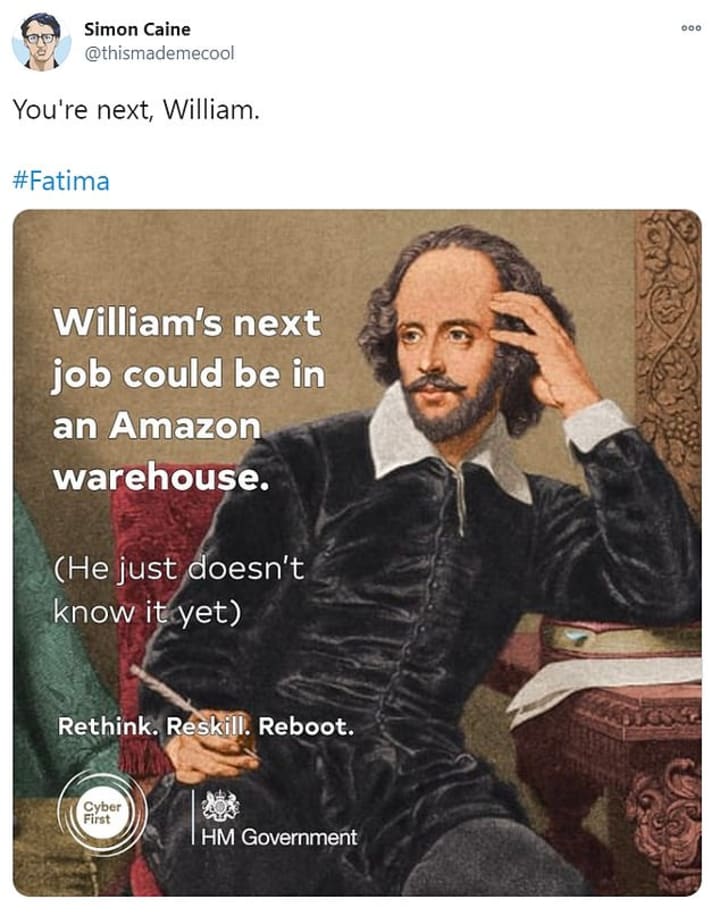
----------------------------------------------------------------------------------------
If you've liked what you've read, please check out my other stories and articles on Vocal.
If you've really liked what you've read, please share with your friends on social media.
If you've really, really liked what you've read, a small tip would be greatly appreciated.
Thank you!
About the Creator
Christopher Donovan
Hi!
Film, theatre, mental health, sport, politics, music, travel, and the occasional short story... it's a varied mix!
Tips greatly appreciated!!
Thank you!!


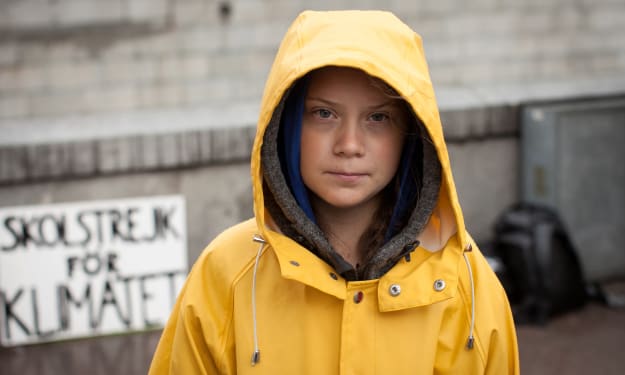
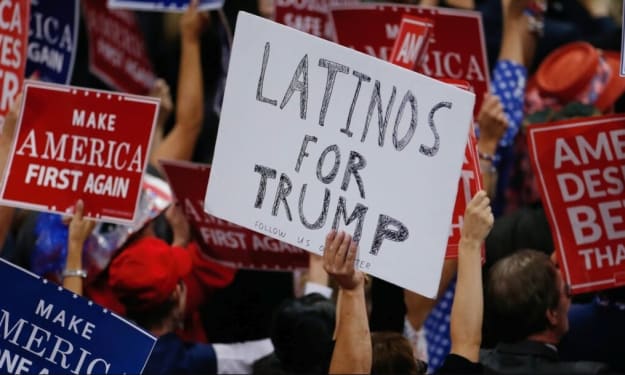


Comments
There are no comments for this story
Be the first to respond and start the conversation.